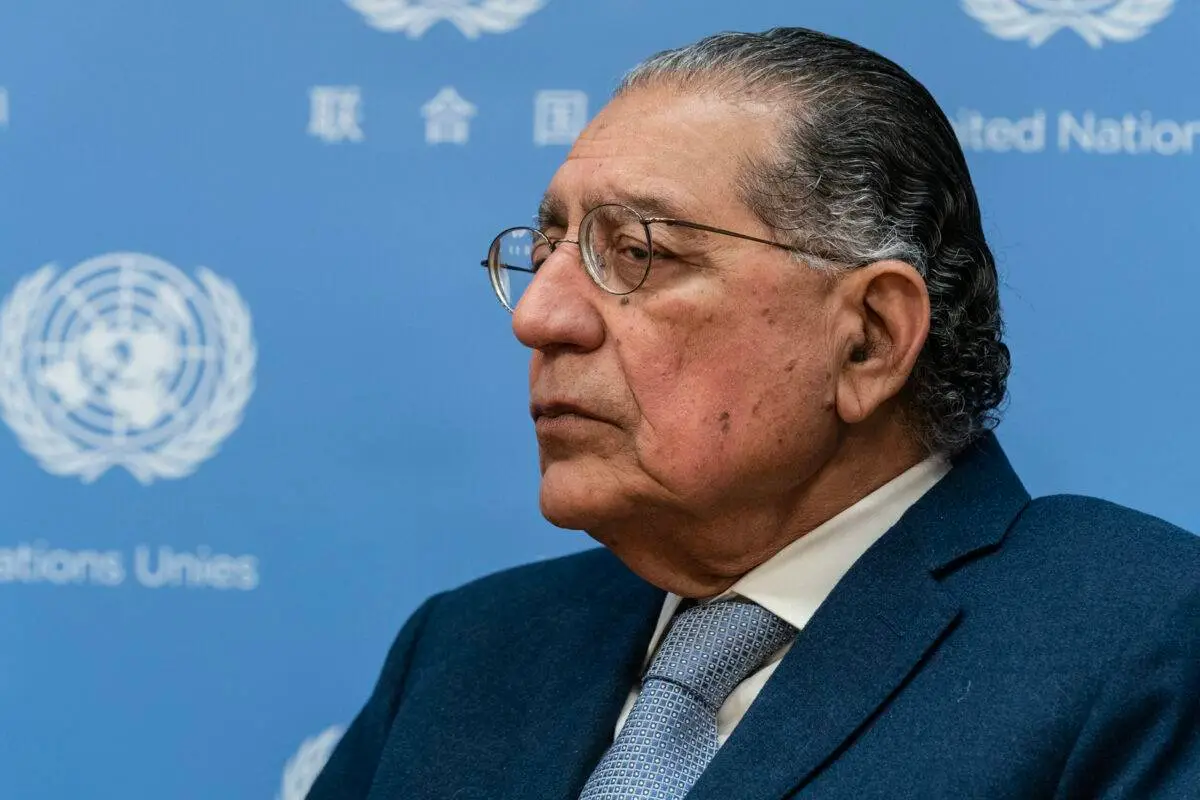In a fervent plea to the international community, Pakistan’s permanent representative to the United Nations, Munir Akram, has called for unified action against Israel’s ongoing activities, stressing that such actions should not go unpunished. Speaking to Anadolu on Monday, Akram expressed grave concern over Israel’s relentless attacks despite a UN Security Council resolution demanding an urgent cease-fire in Gaza on March 25.
Akram emphasized the unprecedented defiance of global consensus by Israel, even disregarding its allies. He underscored the urgency for the international community to compel extremist leaders in Israel to halt the massacre in Gaza, pointing out the sanctions outlined in Article 7 of the UN Charter for enforcing Security Council resolutions.
Highlighting the need to demonstrate the costs of Israel’s actions, Akram stated, “In the first instance, all arms shipments to Israel must stop.” He called on Israel’s allies to refrain from facilitating what he termed as “genocide.” Additionally, he proposed considering sanctions on trade and oil supplies, along with debating Israel’s continued UN membership as potential punitive measures.
Describing Gaza as a “hell” for its residents, Akram emphasized the plight of innocent civilians trapped in the crisis and dismissed Israeli claims of accidental killings, suggesting they were deliberate attacks. He urged the international community to respond to such actions by Israel, labeling it a “rogue regime.”
While acknowledging a shift in the US stance towards supporting a cease-fire, Akram insisted that more action is needed from the United States and other allies to hold Israel accountable. He stressed the importance of imposing necessary costs to convince Israel to end its “brutal war.”
On potential solutions, Akram reiterated the necessity of a two-state solution, asserting Palestinians’ right to have their own state and advocating for Palestine’s full membership in the UN.
Turning to the reform of the UN Security Council, Akram emphasized the need for increased representation and suggested expanding the Council’s membership from 15 to 27 members without veto power. He underscored the importance of restraining arbitrary veto use to prevent council paralysis and ensure the implementation of resolutions.
In a separate remark, Ambassador Akram described the relationship between Turkey and Pakistan as a “love affair,” highlighting the deep affection between the two nations as the cornerstone of their bond. He emphasized the significance of bilateral relations in fostering peace and stability, both regionally and globally, and suggested further collaboration in various sectors, including defense and economics.
Ambassador Akram concluded by stating, “Our partnership is very necessary for Europe, the Middle East, and Asia, particularly during times of uncertainty and instability. Together, we can do quite a bit in promoting peace and stability in our region and worldwide.”
As tensions continue to escalate in the Middle East, Pakistan’s call for international action against Israel’s actions echoes the growing urgency for a resolution to the ongoing crisis in Gaza.
